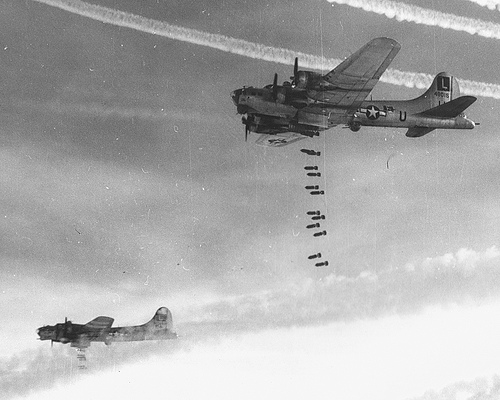 YAHOO NEWS– In late 2006, George W. Bush met with the Joint Chiefs of Staff at
the Pentagon and asked if military action against Iran’s nuclear program was feasible. The unanimous
answer was no. Air strikes could take out some of Iran’s nuclear
facilities, but there was no way to eliminate all of them.
YAHOO NEWS– In late 2006, George W. Bush met with the Joint Chiefs of Staff at
the Pentagon and asked if military action against Iran’s nuclear program was feasible. The unanimous
answer was no. Air strikes could take out some of Iran’s nuclear
facilities, but there was no way to eliminate all of them.
Some of the nuclear labs were located in heavily populated areas; others were deep underground. And Iran’s ability to strike back by unconventional means, especially through its Hizballah terrorist network, was formidable. The military option was never officially taken off the table. At least, that’s what U.S. officials always said.
But the emphasis was on the implausibility of a military strike. “Another war in the middle East is the last thing we need,” Secretary of Defense Robert Gates wrote in 2008. It would be “disastrous on a number of levels.”
Gates is sounding more belligerent these days. “I don’t think we’re prepared to even talk about containing a nuclear Iran,” he told Fox News on June 20. “We do not accept the idea of Iran having nuclear weapons.” In fact, Gates was reflecting a new reality in the military and intelligence communities. Diplomacy and economic pressure remain the preferred means to force Iran to negotiate a nuclear deal, but there isn’t much hope that’s going to happen. “Will [sanctions] deter them from their ambitions with regards to nuclear capability?” CIA Director Leon Panetta told ABC News on June 27. “Probably not.” So the military option is very much back on the table.
Read full article about an Attack with Iran Being Back on the Table.
Photo by flickr user Foqus
© COPYRIGHT YAHOO NEWS, 2010










